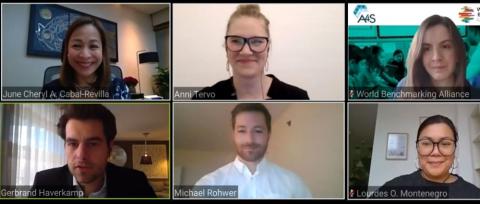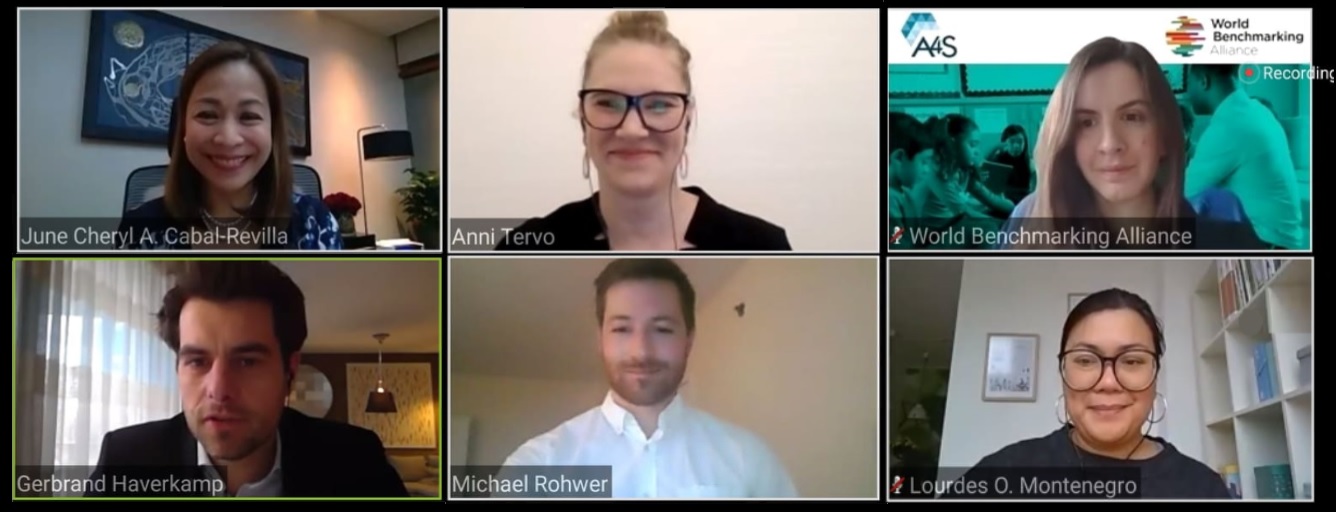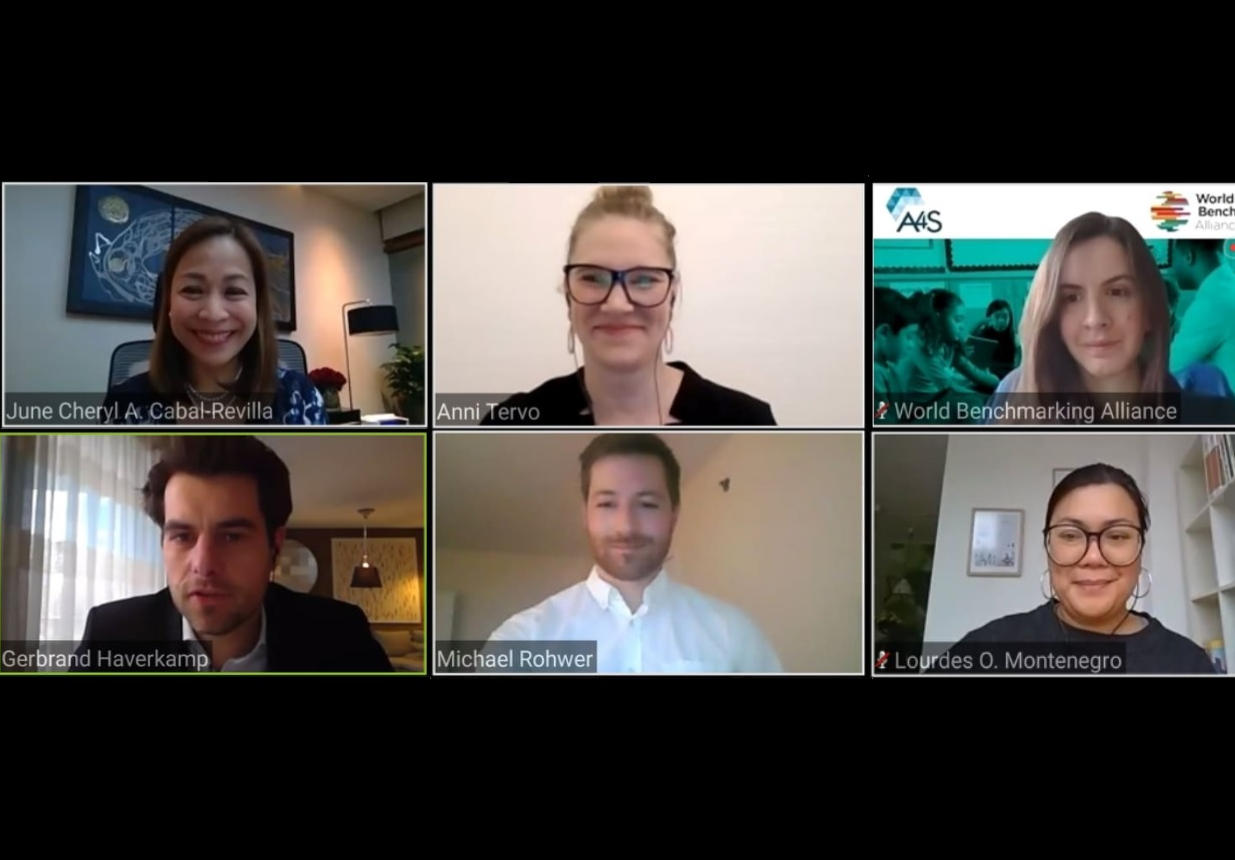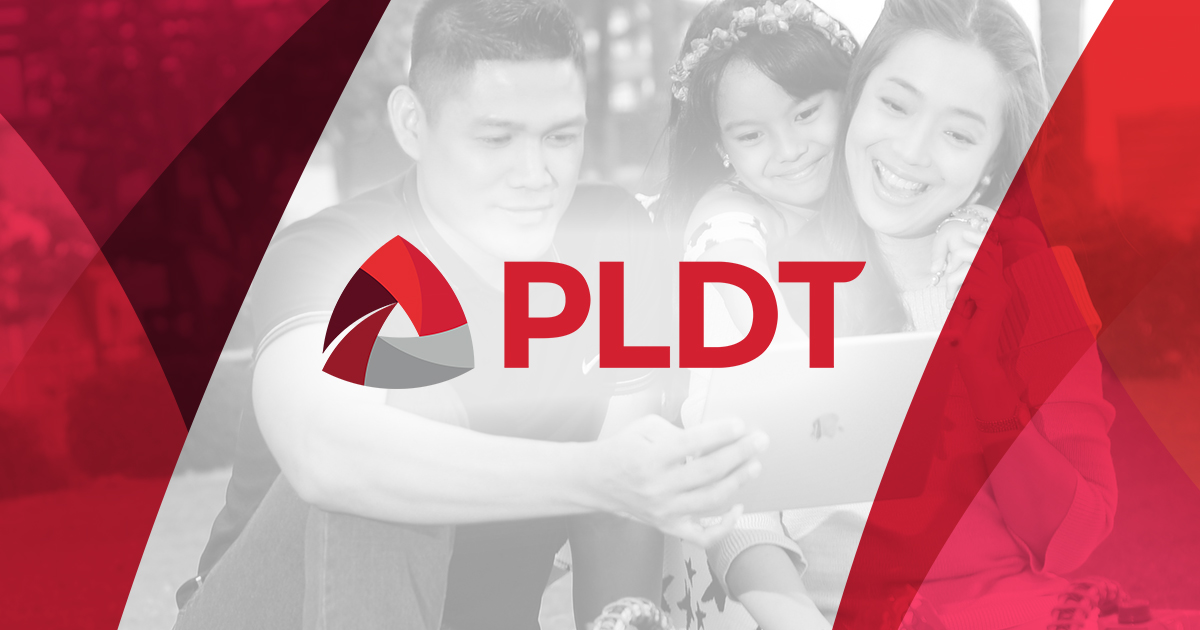

Findings from the recently released World Benchmarking Alliance study on digital inclusion were discussed at the A4S Summit's Disruptive Technologies session by (clockwise from top left): PLDT-Smart Chief Sustainability Officer Chaye A. Cabal-Revilla, United Nations' Anni Tervo from the UN Office of the Special Adviser on Digital Cooperation, WBA Engagement Manager Sofia Del Valle, WBA Executive Director Gerbrand Haverkamp, Business for Social Responsibility (BSR) ICT Director Michael Rohwer, and WBA Lead Digital Sector Transformation Lourdes O. Montenegro.
The Philippines’ largest integrated telecommunications firm PLDT Inc. (PLDT), along with its wireless arm Smart Communications, Inc. (Smart), showcased its best practices in digital inclusion and sustainable development at the annual Accounting for Sustainability (A4S) Summit. The Prince of Wales, who opened the conference, established the A4S in 2004 with the aim of upholding sustainable decision-making in businesses.
PLDT-Smart represented the Top 100 Most Influential ICT Companies cited in the 2020 Digital Inclusion Benchmark (DIB) of the World Benchmarking Alliance (WBA), where the integrated telco ranked 4th worldwide and named the top company in Asia and emerging markets.
Tracking how technology companies worldwide help advance a more inclusive digital economy and society, the DIB used four measurement areas ---access, skills, use, and innovation. All were aligned with the United Nations Sustainable Development Goals (UNSDGs) and informed by research, stakeholder engagement, and related indexes. The WBA then evaluated the companies according to their disclosures, commitments and performance.
The A4S Summit’s Disruptive Technologies session discussed findings from the recently released WBA study and featured PLDT-Smart Chief Sustainability Officer Chaye A. Cabal-Revilla, WBA Executive Director Gerbrand Haverkamp, WBA Lead Digital Sector Transformation Lourdes O. Montenegro, United Nations' Anni Tervo from the UN Office of the Special Adviser on Digital Cooperation, and Business for Social Responsibility (BSR) ICT Director Michael Rohwer as resource speakers.
“The role of fixed and mobile technology has never been more important than during this pandemic, so at PLDT, we tried to keep up with the increased demand by beefing up our network and coming out with much more affordable products and services to cater to the work-from-home employees, entrepreneurs who needed to have online platforms to continue doing business, and the youth and teachers who needed to continue with their learning,” Cabal-Revilla explained.
“We also worked double-time in terms of our corporate social responsibility programs, as we needed to reach more people this pandemic so they can benefit from our connectivity initiatives, digital trainings and hardware donations,” she added.
The WBA developed the DIB in close collaboration with an Expert Review Committee of members from the World Bank Group, GSM Association (GSMA), International Telecommunication Union, and more. Stretching across 33 economies worldwide, the benchmark covers digital systems across three industries: telecommunication services; hardware, consisting of the manufacture of digital goods such as end-user devices, network equipment and semiconductors; and IT services, consisting of software applications, data centers, cloud computing and platform services.
The Digital Inclusion Benchmark is part of WBA’s wider effort to measure and rank the 2,000 most influential keystone companies on how they contribute to the SDGs across seven critical systems transformations. Moreover, the study aims to equip relevant stakeholders – from financial institutions and investors, to civil society, to policymakers, and to consumers – with the data they need to inform their engagement with business and drive increased inclusivity within and across the sector.
The DIB will be free and publicly available, published annually and shared widely with government, investor and civil society stakeholders worldwide, including 128 WBA allies representing USD 6.3 trillion assets under management.
For details on PLDT-Smart's ranking and more information on the World Benchmarking Alliance, visit www.worldbenchmarkingalliance.org/publication/digital-inclusion/companies/pldt.
For more information about PLDT and Smart’s sustainability initiatives, visit www.pldt.com or send an email to ChiefSustainabilityOffice@pldt.com.ph.


